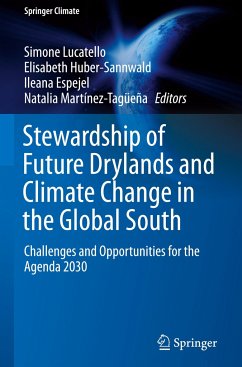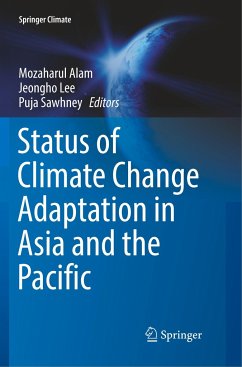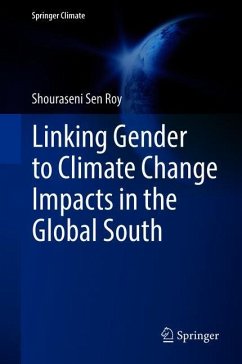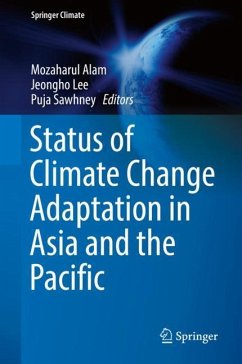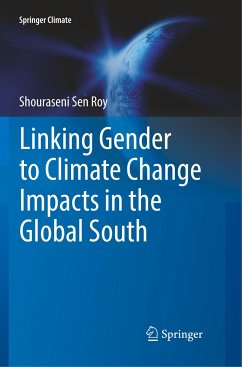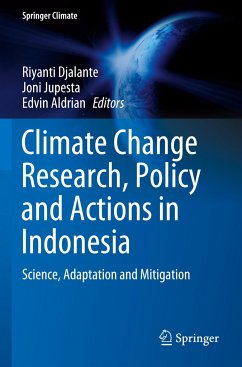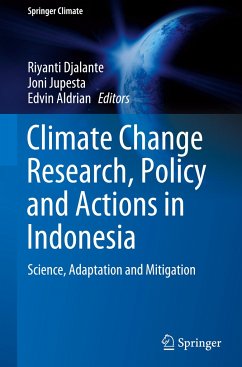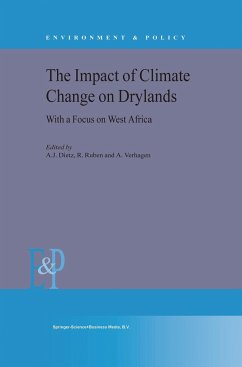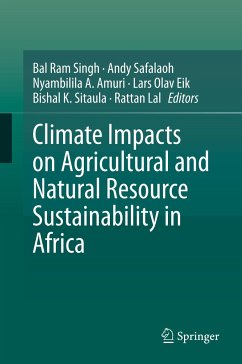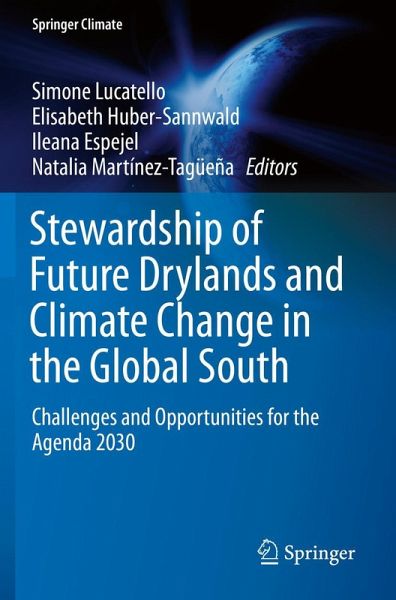
Stewardship of Future Drylands and Climate Change in the Global South
Challenges and Opportunities for the Agenda 2030
Herausgegeben: Lucatello, Simone; Huber-Sannwald, Elisabeth; Espejel, Ileana; Martínez-Tagüeña, Natalia
Versandkostenfrei!
Versandfertig in 6-10 Tagen
68,99 €
inkl. MwSt.

PAYBACK Punkte
34 °P sammeln!
This volume integrates a conceptual framework with participatory methodologies to understand the complexities of dryland socio-ecological systems, and to address challenges and opportunities for stewardship of future drylands and climate change in the global south. Through several case studies, the book offers a transdisciplinary and participatory approach to understand the complexity of socio-ecological systems, to co-produce accurate resource management plans for sustained stewardship, and to drive social learning and polycentric governance. This systemic framework permits the study of human...
This volume integrates a conceptual framework with participatory methodologies to understand the complexities of dryland socio-ecological systems, and to address challenges and opportunities for stewardship of future drylands and climate change in the global south. Through several case studies, the book offers a transdisciplinary and participatory approach to understand the complexity of socio-ecological systems, to co-produce accurate resource management plans for sustained stewardship, and to drive social learning and polycentric governance. This systemic framework permits the study of human-nature interrelationships through time and in particular contexts, with a focus on achieving progress in accordance with the 2030 United Nations Agenda for Sustainable Development.
The book is divided into four main sections: 1) drylands and socio-ecological systems, 2) transdisciplinarity in drylands, 3) interculturality in drylands, and 4) the governance of drylands. Expert contributors address topics such as pastoralism and the characteristics of successful agricultural lands, the sustainable development goals and drylands, dryland modernization, and arid land governance with a focus on Mexico. The volume will be of interest to dryland researchers, sustainable development practitioners and policymakers.
The book is divided into four main sections: 1) drylands and socio-ecological systems, 2) transdisciplinarity in drylands, 3) interculturality in drylands, and 4) the governance of drylands. Expert contributors address topics such as pastoralism and the characteristics of successful agricultural lands, the sustainable development goals and drylands, dryland modernization, and arid land governance with a focus on Mexico. The volume will be of interest to dryland researchers, sustainable development practitioners and policymakers.



